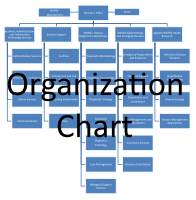|
The National Wildlife Health Center (NWHC) is a science center of the United States Geological Survey. The NWHC was established in 1975 as a biomedical laboratory dedicated to assessing the impact of disease on wildlife and to identifying the role of various pathogens in contributing to wildlife losses.
Our Mission
National leadership to safeguard wildlife and ecosystem health through dynamic partnerships and exceptional science
Core Values
- Inspiration: We recognize that the health of wildlife is vital to the sustainability of the Earth’s eco systems
- Leadership: Our National scope and breadth of expertise provide us with the strength to be a leader in promoting the importance of wildlife and ecosystem health, bringing it to the forefront of national consciousness
- Partnerships: We recognize the power of partnerships and actively seek and foster collaboration in all our activities. Our work is guided by the diverse needs and challenges of those we serve who are responsible for the stewardship of our Nation’s wildlife and ecosystems
- Integrity: We hold ourselves to the highest standards to produce quality science in a transparent manner that will inform managers and policy decision-makers
- Innovation: We meet the difficult challenges of our work with creativity and passion, generating innovative solutions to complex problems
- Culture: Recognizing our employees as our foundation, we strive to provide a safe, supportive, and respectful environment that values teamwork and diversity of thought
Background and Activities
Each year, wildlife managers across the United States are confronted with sick and dead animals, frequently on a large scale. Minimizing such wildlife losses depends on effective technical support, knowledgeable guidance, and timely intervention. The National Wildlife Health Center (NWHC) mission is to provide information, technical assistance, and research on national and international wildlife health issues. To fulfill the NWHC mission, the Center monitors disease and assesses the impact of disease on wildlife populations; defines ecological relationships leading to the occurrence of disease; transfers technology for disease prevention and control; and provides guidance, training and on-site assistance for reducing wildlife losses when outbreaks occur.
The NWHC is located in Madison, Wisconsin. The buildings and laboratories are designed exclusively for combatting wildlife diseases. Due to the mobility of wildlife and the potential for spread of disease, timely and accurate determination of causes of wildlife illness and death is a prerequisite to achieving effective disease control and prevention. National wildlife refuge personnel, law enforcement agents, state conservation agency biologists, university-affiliated scientists and others send wildlife carcasses and tissue samples to the NWHC for diagnostic examination. The Center has a staff of over seventy scientists and support personnel who offer services and conduct activities to prevent and control wildlife diseases. The Center had a major role in conducting field studies and providing expert testimony that resulted in the conversion to nontoxic shot for hunting waterfowl in the United States.
Center field investigations provide immediate technical assistance to field personnel who find sick and dead wildlife. NWHC personnel provide instructions on collection, preservation, and shipment of specimens for laboratory examination and will travel to problem areas to conduct field investigations and assist local personnel with disease control operations. They respond to catastrophic events, such as major die-offs, that threaten the health of wildlife populations. Assistance is provided for disease problems that involve migratory birds, endangered species and other warm-blooded wildlife that live on Department of Interior (DOI) lands throughout the United States.
Center staff also provide expertise regarding animal welfare regulations and their application to wildlife. Technical assistance regarding animal welfare matters is often provided to wildlife biologists and others. Preparation of videotapes, publications, consultations and training are activities commonly carried out by the Center in the animal welfare arena.
|
|
Quick Links
|

|

|
|